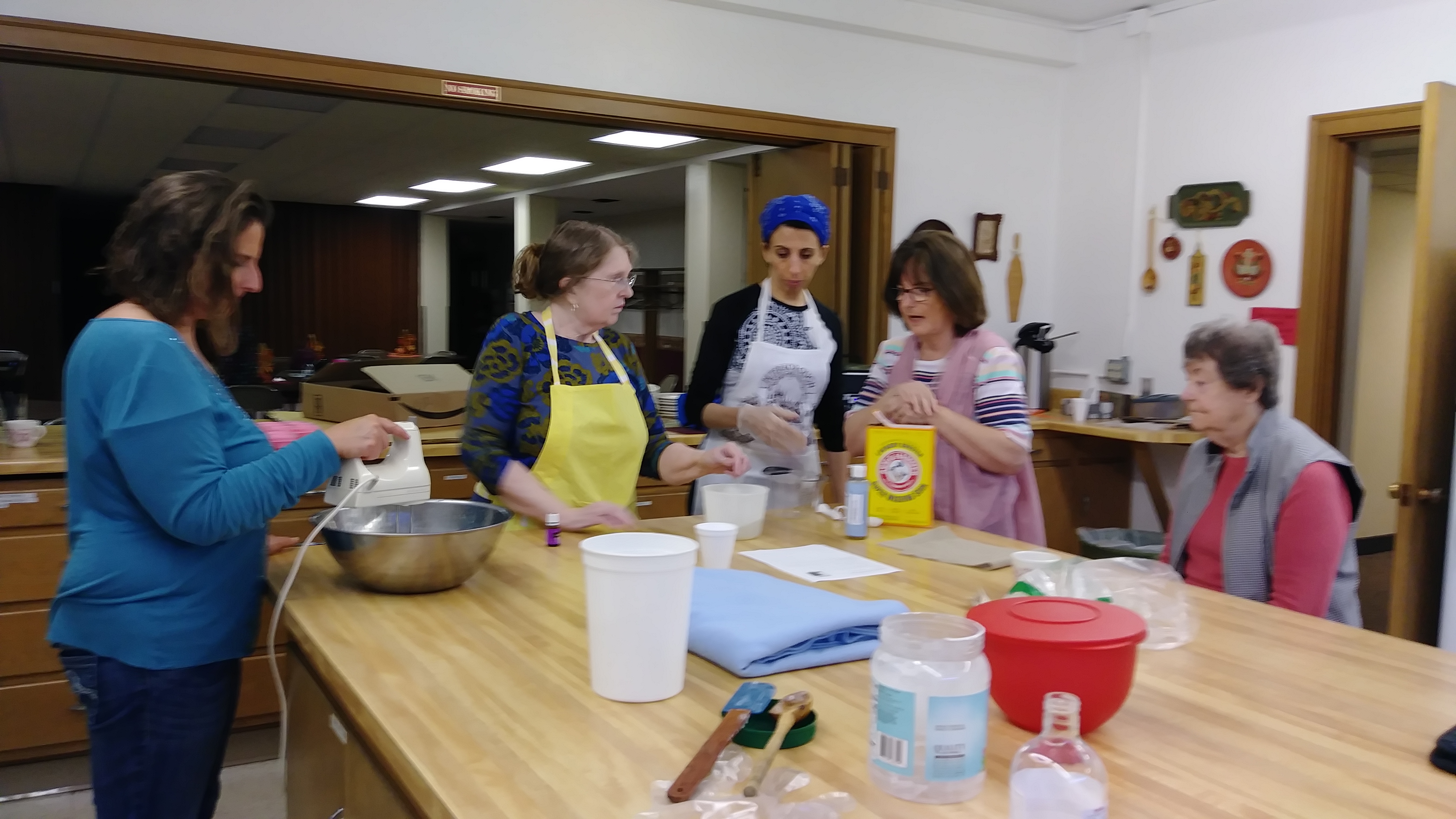It was the 1st Annual Soup & Suds Gathering at Immanuel Lutheran Church. All that attended had a wonderful time learning about the soap making process and enjoying a wonderful meal. Thank you Pastor Niveen for your inspiration to live a little greener. And thank you, Janci for the awesome soup and bread. It was so scrumptious. A special thank you to the ladies who attended the class. It was truly a great time of fellowship.
Can't wait to see that soap. It takes several weeks for it to cure. However, the dishwashing soap is ready to use in the kitchen.






